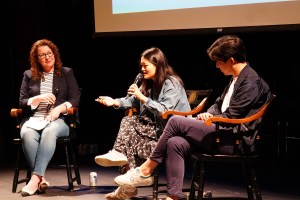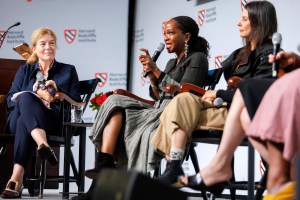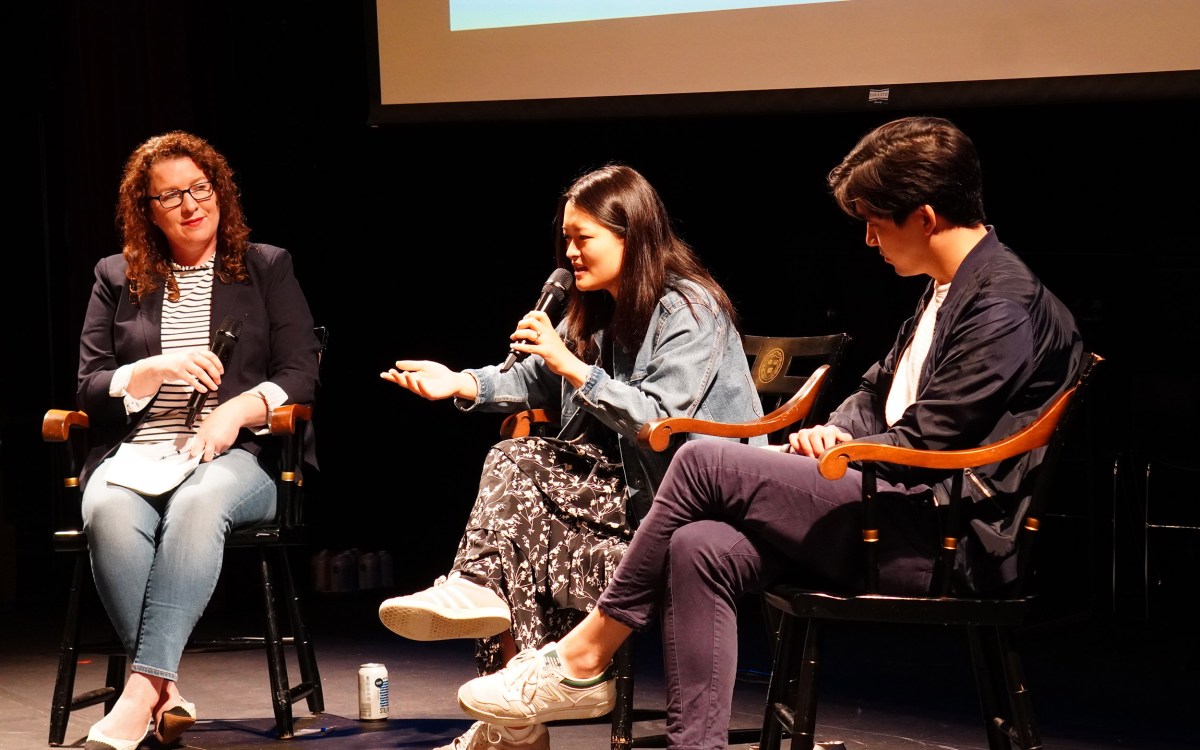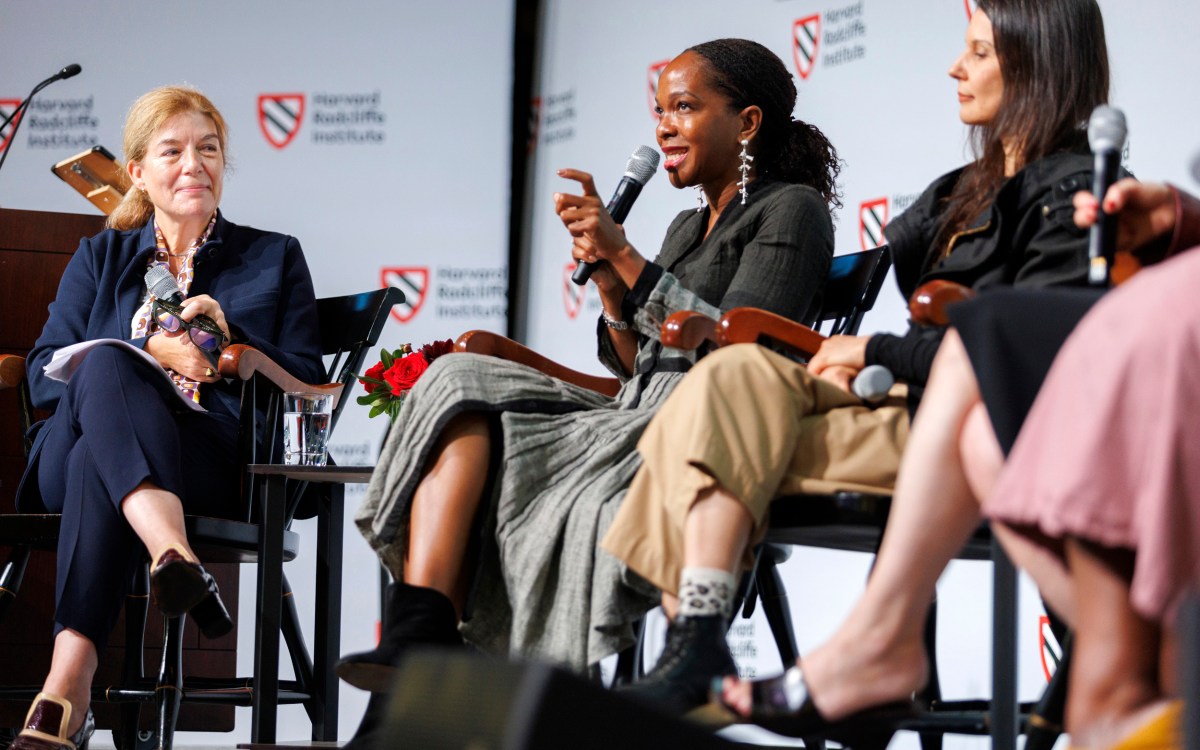Writers at risk talk about their lives
Lamont Library event features poets, journalists, novelists
For some, words are both a way of life and a way of risking life. Last year, 877 writers and journalists around the world were killed, jailed, or attacked.
That’s according to PEN International, a global association of writers. A recent PEN event celebrated — among others — the memory of Ken Saro-Wiwa, a Nigerian writer hanged for his activism in 1995. In a testament to the fearful power of his words, his body was burned with acid and buried in an unmarked grave.
An audience of 90 at Harvard’s Lamont Library got a glimpse last week (April 29) at the dangers that free expression sometimes invites. A panel of six writers from six troubled lands talked about home, language, war, censorship, audiences, and inspiration.
The April 29 panel, “In Other Wor(l)ds,” was sponsored by the Humanities Center at Harvard and the Harvard College Writing Program, and by Stephen Greenblatt, Cogan University Professor of the Humanities. Moderator and chief organizer was writing program preceptor Jane Unrue, also a member of Harvard’s Scholars at Risk committee.
All six writers are living in the United States at least temporarily. Two will go home shortly; the others — from Iran, China, Democratic Republic of the Congo, and Cuba — still suffer degrees of exile.
Iraqi novelist and journalist Mayselun Hadi, a visiting scholar at Harvard this year, said of her homeland, “I consider the few years spent away from it as if I am not living.”
She is translating some of her stories from Arabic to English. Her novel “The World Minus One” is a view of the first Gulf War. Poet Xue Di, a veteran of Tiananmen Square activism in 1989 and in exile since 1990, visits home imaginatively. “When I write in Chinese,” he said, “I connect with my culture.”
This year, Di — a one-time International Writing Fellow at Brown University — will publish a book of his that he is translating from English to Chinese, “A View Along the Running Edge.”
Iranian novelist Shahriar Mandanipour once wrote stories huddled under artillery fire during the Iran-Iraq War. After three years in the United States, he worries that for every English word he learns, one in Farsi — a language he called “my treasure” — disappears.
Unrue asked them all: Why write?
Hadi — the author of a Saddam-era book called “Things That Did Not Happen” — called writing “a message to be delivered.”
Pierre Mujomba, a one-time Brown writing fellow harried out of his native Congo in 2003, writes (in French) to give the world a view of an Africa that is marked by corruption and authoritarian rule.
“I want the future to know what is happening in my country,” he said of his stories, poems, and plays. “What we write is not history books, but it is part of history.”
Mandanipour paused to thank all the dictators who had conspired to make such a panel of writers possible. “They should be here,” he said.
And censorship?
Novels offer “ways to hide yourself,” offered Di, but poetry is emotionally naked — and was in the past a surer “invitation to prison.”
Mujomba once wrote a play disapproved of by government censors in Kinshasa, so he staged it at the French Embassy. It was banned after one performance. “They didn’t arrest me,” said Mujomba, “but they arrested the show.”
Pablo Medina, who left Cuba as a boy and will teach at Emerson College this fall, has written memoirs, poems, stories, and novels unmolested by conventional censorship. But censorious forces of another sort are at play, he said: a U.S. literary market that types you as a writer, and an academy that pronounces you worth studying (or not).
Censorship sometimes takes a religious turn, said Mandanipour, “something like the Middle Ages.”
In a story published in an academic literary journal he edited, a boy and a girl were seated back to back on a park bench. The scene earned a warning from Iranian censors, said a disbelieving Mandanipor, for being “so sexy.”
His newest novel, available May 5 from Knopf, is “Censoring an Iranian Love Story.”



